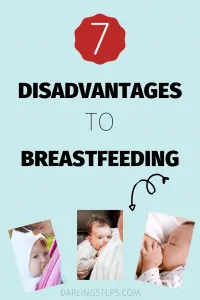The Problems with Mothers & Multitasking
Most moms think they’re good multitaskers. But, the truth is, no one is good at multitasking. The human brain is not designed for it. Sure, we can chew gum, walk and talk and so forth, but when your brain needs to focus on a task such as reading, driving, learning, writing and that type of thing, it’s not a good idea to try to multitask.
There Is No Such Thing as Multitasking
The truth is, what we call multitasking is really what is termed “task switching”. This means that you can go back and forth between tasks such as watching TV and reading, for example, but you’re not really doing both at the same time.
Trying It Causes You to Be Slow
When you don’t give 100 percent of your focus to the task at hand, it will take longer. Try it for yourself. The next time you need to get something done, set a timer for 30 minutes. Do only that task. Don’t watch TV, listen to the radio, check your phone or anything. Then do the same task again for the same amount of time while also doing something else and you’ll see that you get more done.
It Causes You to Make Mistakes
When you multitask, you can make mistakes. What if your surgeon was texting while doing surgery? As ludicrous as this sounds, so many people think they’re able to text and drive. In many cases, multitasking is deadly; in other cases it just causes you to make unneeded mistakes.
It Causes Inaccuracies
Need to do your taxes? Pay attention to exactly what you’re doing and nothing else if you don’t want to make silly mistakes. The same can be said for cooking, changing the oil in your car or anything with steps to make that produce results.
It Makes You Stressed
When everything is taking too long, you make mistakes such as your taxes are inaccurate. And then you’re stressed out, of course. The stress can manifest itself into sickness, burnout, and worse.
You’re Not Experiencing Life
One of the saddest parts of multitasking is that the people who do it are missing out on experiencing life. They miss weddings, family dinners, and other intimate relationships due to always trying to do more than one thing at a time.
It Increases Problems with Memory
When you have too much going on, it can lead to information overload, which can cause problems with your memory. Your brain essentially starts filtering information incorrectly, which causes everything to have the same weight of importance. This causes you to forget.
It Affects Your Relationships
If you’ve had even one person tell you that you’re on your phone too much, listen to them. That means everyone you know probably thinks you aren’t present during important times. They start to think you don’t care about them, and you won’t be able to build long-term intimate relationships if you don’t take the time to focus on them.
It Causes Weight Gain
Believe it or not, multitasking may be to blame for the fact that over 60 percent of the population is overweight today. Why? When you eat and watch TV, eat and work, eat and drive, you’re not focused on the activity of eating, so you miss bodily cues that let you know when you’re satiated.
You Can’t Really Do It
As mentioned before, no one really multitasks. They just switch from one task to another. Since it’s not possible to do more than one thing at a time, stop trying. Give yourself enough time to do each thing without interference, and you’ll improve the quality of your life tremendously.
Mothers that multitask take in TOO MUCH information
Information is everywhere
Louis Freeh once said that “Collecting intelligence information is like drinking water out of a fire hydrant.” While you’re not likely collecting intelligence information, that’s what information overload is like: drinking water from a fire hydrant. Much of it will spill out and be missed. The same can be said about information overload.
Feeling Too Much Stress
One of the main symptoms of information overload is to feel stress. Some people say it feels like their brain is being so bombarded by information that as information goes in one side it’s coming out the other. This causes people to forget things, which makes the stress build.
Lack of Confidence
When there is so much contrary information available, it’s hard for people to choose the right course of action. For example, there are numerous reports that spanking is both bad for kids and good for kids. How do you know what information is right and what is wrong, and how do you proceed? The lack of confidence can cause people to not make any choices or feel bad about the choices they make.
Improper Information Filtering
When too much information is transmitted, the person receiving it often shuts off in a way. Normally the filtering process categorizes information as important or not important, but when there is too much there is often improper filtering called twigging. This essentially means that everything is general and all information is the same.
Not Knowing What’s Right or Wrong
When there is so much information with seemingly factual studies supporting them, it’s hard to know what’s right or wrong. For example, is a Paleo diet better or a vegan diet better for humans for weight loss and health? Which studies are right? Is there any way to know?
Feeling Confused About Common Knowledge
When you don’t know what information is real, what’s right and wrong, and you can’t see the details for the forest, it leads to confusion about things that people generally know to be true about the world.
Increasing the Fear of Change
When you can’t determine what the information you receive means, it can cause you to fear change because you don’t know if that change is good or bad. Since information overload leads to black and white thinking, this can increase the fear of change that most people have naturally.
Taking on Too Much Too Fast
Sometimes information overload can make people feel as if they can multitask everything and do more than they can. But the truth is, as shown in study after study, humans aren’t designed for multitasking. If you don’t believe that, read this Forbes article about multitasking:
You can work toward controlling information overload.
Limit your exposure to screens and try to focus on what you’re doing at the time you’re doing it. Avoid multitasking whenever you can if it’s important to absorb the information properly.
Information Overload Effect on Children
According to School Library Media Research, about 85 percent of all children experience information overload – with it affecting girls at a higher rate than boys. Information overload is exposure to too much data, which of course is everywhere now. Kids get information from parents, teachers, television, games, TV shows and the internet.
Improper Filtering of Information
When a child is given too much information for their brain to handle, they just stop filtering the information properly because it’s too fast and too much. Due to this improper filtering of information, they might remember the information incorrectly or they might just dump it right out of their head. If your child is suffering in this way due to teachers, ask them to slow down for your child or organize the information differently.
Too Much Generalization of Information
Another symptom of information overload in kids is that they’ll tend to feel that the information isn’t important and put it into the “general” category in their minds. Which of course leads to missing important things like test dates, or leaving their coat or wallet in places they didn’t want to leave it.
Forgetting Information
When anyone including children gets too much information too fast, they just dump it. That leads to forgetting important information. A child might even forget to go to the bathroom due to the confusion in their brain if they’re young enough. Information overload can cause children to be handicapped from moving forward in their development if it’s not put under control.
Processing Incorrect Information
One of the worst things that happens to kids with information overload is that they process the information wrongly. For example, if you teach them how to factor numbers but throw a bunch of other irrelevant information at them at the same time, they’ll forget how to do it correctly.
Not Processing Any Information
Many children will just shut down and stop processing the information at all. These children are often considered lazy, or diagnosed with ADD or other disorders – the worst being ODD (oppositional defiance disorder). Many end up medicated when the only problem was that they were getting too much information too fast.
Having Night Terrors
Some children have serious repercussions to information overload, such as bed wetting and night terrors. These children are often perfectionists by nature and want to do well, but feel as if they just have too much to do and to know, so it shows up in their sleep.
Experiencing Headaches Often
Other children start getting headaches due to stress. Headaches in the neck and back of the head is a telling sign that your child is over-stressed and that it could be from information overload.
Showing Tiredness at School
Some kids just sleep when they’re stressed out. Information overload can make people tired, including children. If your child sleeps at night but seems to fall asleep anytime someone is trying to impart important information to them, look at their schedule and life to find out if it could be information overload.
You can lower the chances of your own child suffering from information overload by helping them avoid too much information. Getting plenty of down time without screens is one way to accomplish this. Plus, teaching your child to schedule and chunk information in a better way may cut down on the overload symptoms.
Additionally, attempting multitasking will ruin your creativity and take the joy from the things you like to do. Life is a series of events that you should take the time to enjoy and soak in, even if it’s data entry or reading a dry school book. You’ll get more out of your life if you start trying to focus on one thing at a time so that you do your best and feel good about it.








